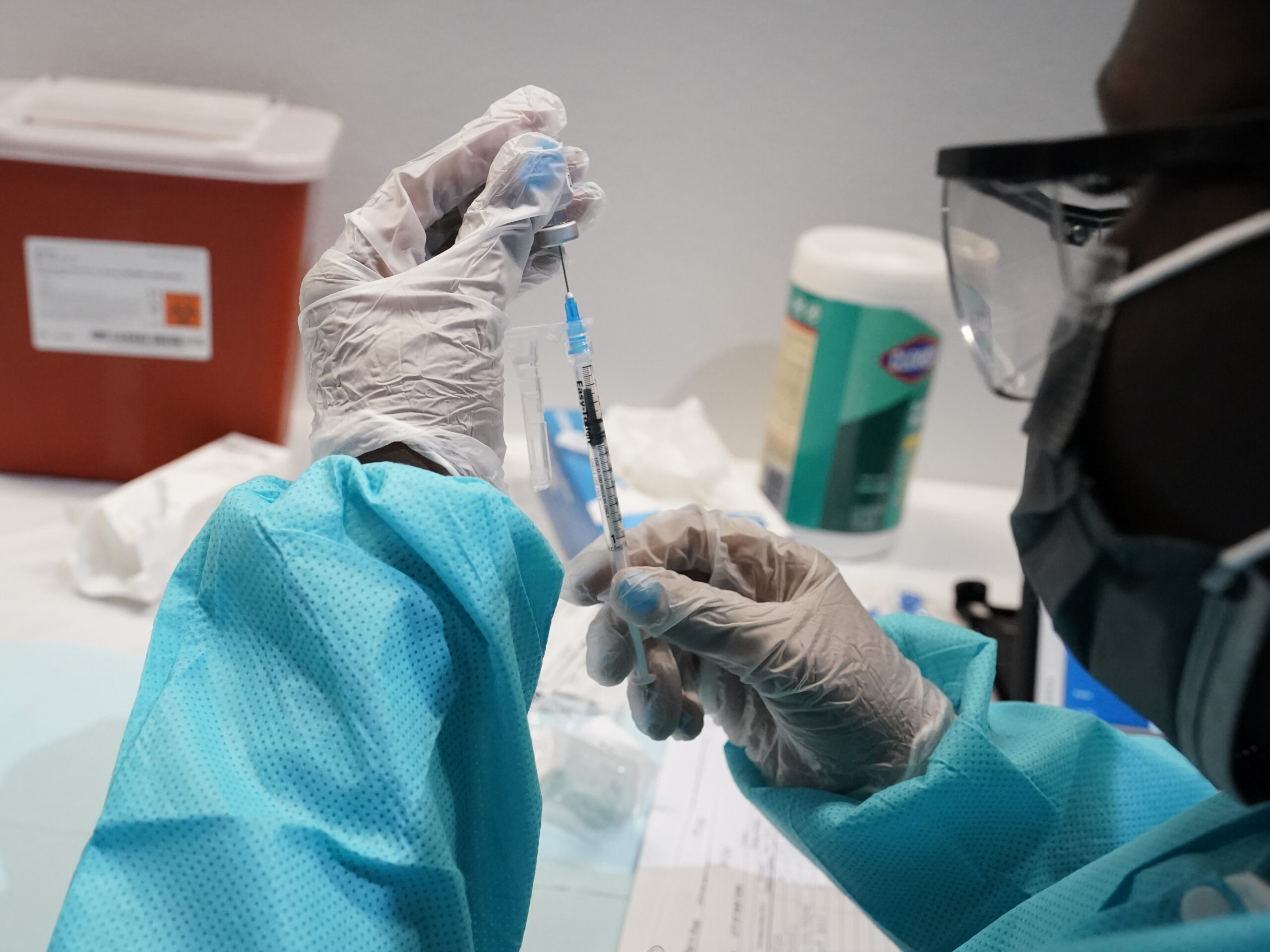
COVID-19 booster shots of the Pfizer and Moderna vaccines are set to become available for all U.S. adults beginning next month, the country’s top health officials announced Wednesday.
“We know that even highly effective vaccines become less effective over time,” Surgeon General Dr. Vivek Murthy said at a White House briefing. “It is now our clinical judgment that the time to lay out a plan for COVID boosters is now.”
“This includes our most vulnerable populations, like our health care providers, nursing home residents and other seniors. We will also begin delivering booster shots directly to residents of long term care facilities,” he said.
The announcement comes as health officials across the country are battling a new wave of COVID-19 cases linked to the highly transmissible delta variant. The latest infections have once again pushed intensive care unit occupancy rates to the breaking point in multiple states, especially those with low rates of vaccination.
The surgeon general said that health officials were concerned about “waning immunity and the strength of the delta variant” — a “pattern of decline” that could “continue in the coming months.”
In a statement released shortly before Wednesday’s briefing, the Department of Health and Human Services cautioned that “the current protection against severe disease, hospitalization, and death could diminish in the months ahead, especially among those who are at higher risk or were vaccinated during the earlier phases of the vaccination rollout.”
The booster plan would go into effect from the week of Sept. 20 subject to the Food and Drug Administration “conducting an independent evaluation and determination of the safety and effectiveness of a third dose of the Pfizer and Moderna mRNA vaccines and CDC’s Advisory Committee on Immunization Practices (ACIP) issuing booster dose recommendations based on a thorough review of the evidence,” the statement said.
People who got the single-dose Johnson & Johnson vaccine would also likely need an additional shot to prolong its effectiveness against coronavirus infection and to reduce the severity of COVID-19 symptoms, health officials said.
People 18 years and older who received the Pfizer or Moderna vaccines will be eligible for a booster dose eight months after their second dose, officials said.
RELATED: Mat-Su schools’ mask policy a balancing act that not all are happy with
CDC Director Dr. Rochelle Walensky cited three studies being published at 1 p.m. ET in the CDC’s Morbidity and Mortality Weekly Report that show reduction in protection from infection over time, including in nursing homes and against the delta variant. Effectiveness against severe disease, hospitalization and death remains relatively high, she said.
Dr. Anthony Fauci, the chief medical adviser to President Biden, said the plan for a booster is happening now because “if you wait for something bad to happen, you’re considerably behind in your response.” When it comes to virus, he said, it’s better to stay ahead of it than chase after it.
Jeffrey Zients, the White House Coronavirus Response Coordinator, said the aim was to make the administration of booster shots as easy as possible — and that they would be given at the same locations where people received their first and second vaccine doses.
He also defended the plan to give Americans an additional dose while much of the rest of the world remained unvaccinated. The U.S. goal is to administer 100 million booster shots in the coming months. Over the same time period, 200 million doses would be donated to other countries, Zients said.
He said 90% of Americans lived within five miles of one of the more than 80,000 vaccination sites across the country.
Since the start of the pandemic some 20 months ago, more than 623,000 people in the U.S. have died from COVID-19, according to figures tallied by Johns Hopkins University.
Speaking at Wednesday’s briefing, CDC Director Dr. Rochelle Walensky said the U.S. was averaging about 500 COVID-19 deaths per day.
9(MDQ2OTU5NjExMDE2MTkwMTE2MDExMzAxYg000))




